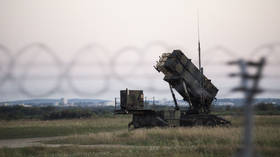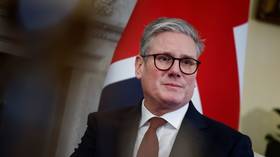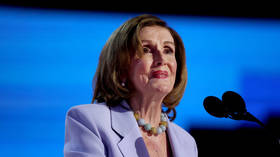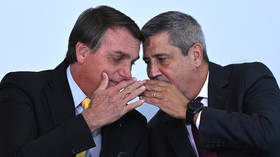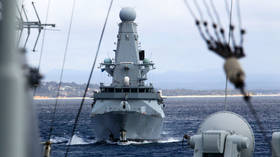Global plan can lift us out of recession - APEC
The leaders of some of the world’s biggest economies say globalisation and free trade can help revive the world economy. The comments were made in a statement at the APEC summit in Peru. The forum’s final declaration covered 12 main topics on how APEC mem
The statement from the 21 nations at the Asia-Pacific Economic Cooperation forum said globalisation is a profitable system for all of the group’s members.
The group have been meeting to plan a way out of the world financial crisis and say they are committed to the principles of free trade.
The leaders agreed on a common stance for regional economic integration, trade and investment liberalisation, increasing personal safety, climate change and energy security. But they also revealed measures they hope will improve the global economy such as reform of international financial bodies like the IMF and World Bank.
They called for reducing the gap between developed and developing economies in the region and said the main answers to regional economic challenges should be advancing regional economic integration, structural reform and raising food security.
The APEC leaders have also pledged to cooperate to provide trade, investment and infrastructure safety and to keep on with consolidating the forum, pointing out it is “a very important summit to economically cooperate in the region.”
Traditionally, international security and the war against terror have been high on the agenda.
On Saturday the APEC leaders agreed on a one year-long moratorium on new barriers to world trade and investment.
The APEC leaders have also supported the anti-crisis recommendations agreed upon at the G20 summit in Washington.
The 21 leaders of the Asia-Pacific Economic Cooperation forum issued a statement which says they plan to complete the Doha round of talks within the framework of the World Trade Organization (WTO), aimed at lifting restrictions on the movement of goods and services around the globe.
While the APEC leaders agreed not to create new barriers to investment and trade, most of them agree this measure is like a painkiller – urgent and short-lived. When the current financial cramp lets go, they will have to decide what to do with the critically ill system. Help it recuperate, as the U.S. wants, or build a new one, as Russia and others suggest.
The member nations, accounting for nearly half of all global trade and 55% of the world's gross domestic product, include the U.S., Australia, China, Russia, Canada, Indonesia, New Zealand, South Korea, Peru, Vietnam, Chile and Mexico among others.
The forum was established in November 1989 as an instrument of peaceful resolution of economic, social and ecological problems in the region.
The 16th APEC summit marks the first ever visit of the Russian President to Peru and U.S. President Bush's final major trip abroad before his term ends.
After a short bilateral meeting between Dmitry Medvedev and George W. Bush, Russia’s Foreign Minister Sergey Lavrov told reporters that the presidents have agreed to continue cooperating in a number of areas – despite the existing disagreements between their countries.
“President Bush was the first to say that Russia and the U.S. should not get caught in an endless loop because of disagreements which can exist between two major powers, but should focus on solving practical issues which are important for both countries and for the whole international community,” he said.
Lavrov, who himself had a meeting with U.S. Secretary of State Condoleezza Rice on the sidelines of the summit, announced that Russia and the U.S. agree on the necessity to fight piracy not only at sea but also on Somali land, together with the country’s government, and have decided to come out with a joint initiative.
“Dmitry Medvedev and George W. Bush have decided that our countries can come out with a practical and legal initiative which would be more effective,” Lavrov said.
Earlier officials said that vessels from a number of Russian fleets would take part in patrols off the coast of Somalia. The Gulf of Aden remains one of the most dangerous stretches of water in the world – there've been more than a hundred piracy attacks there this year alone.
In the past two weeks eight vessels have been seized including a huge Saudi supertanker loaded with $US 100 million worth of crude oil.
The global financial crisis was also touched upon at the Lavrov-Rice talks. The Foreign Minister revealed that the meeting of the Middle East Quartet may take place before the end of 2008 to begin preparations for the conference in Moscow next spring.
“It is important to provide continuity to the process which was begun in Annapolis,” Lavrov said.
Dmitry Medvedev has even invited George W. Bush to Russia for a fishing trip after he retires as U.S. President.
But the Kremlin made it clear it would wait for the next U.S. president to take office before making any serious decisions that could affect bilateral relations.
The Russian President has also met with Japan’s Prime Minister Taro Aso.
Responding to Aso’s question concerning the frontier issue, Medvedev said there are “no insoluble questions between Russia and Japan.”
Related links
G20 outcomes offer hope but little detail
Medvedev seeks Portuguese backing of Euro security plan


